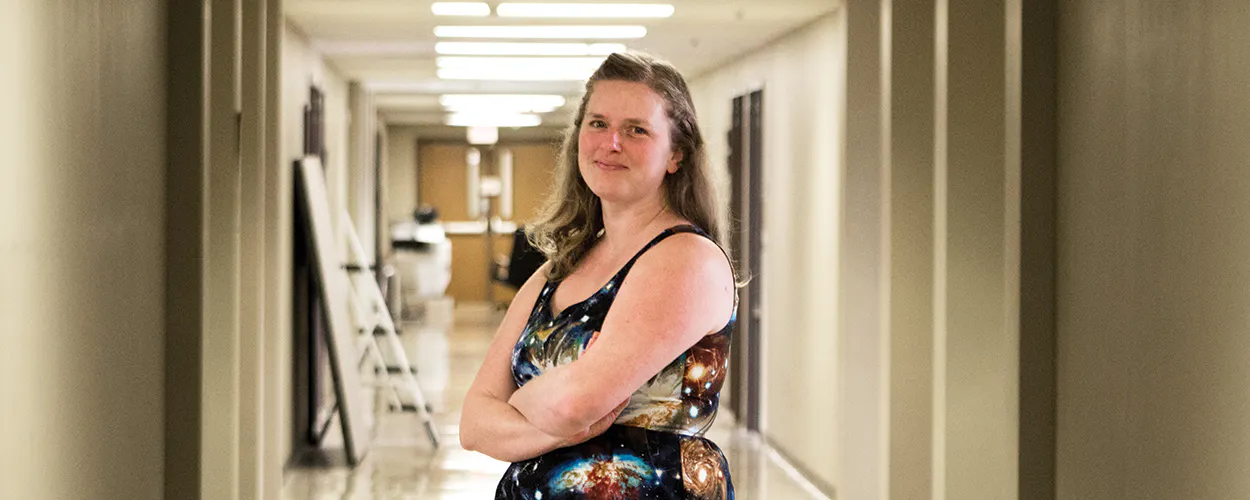Financial aid that adds up
Allison McNeece might have taken a longer path to becoming a teacher, but she's a better educator because of it.
As a headstrong teenager, she dropped out of school at age 16 and got her GED. For a while, she worked a variety of jobs that, at the time, paid the bills and satisfied her. Until she began to see friends graduating and moving into more career-oriented positions.
She realized she wanted a job that could carry her into the next phase of her life. Thanks to a recommendation from a friend, she found a position at a Head Start program for rising kindergarteners. "She said, 'I think you would enjoy doing this,'" says McNeece. "My friend said, 'I see something in you; I think you would enjoy working with people—why don't you try teaching?'"
That summer program was her first experience in a classroom. Not long after, she enrolled in college and eventually received her bachelor's in mathematics from Florida State University. At the time, she says, her focus was on a subject she found interesting. And yet, as her graduation neared, she realized, once again, she was at a career crossroads.
"When I graduated with that degree, I was like, 'OK, so now what do I do with this?'" recalls McNeece. "And I went back to my love of teaching and realized I needed to go with that for my education. But I needed another layer—I felt like I had a base layer, but I needed something more specific before I could have a career."
McNeece got married around the same time, and the couple began to consider their next steps. Her husband wanted a city with a vibrant music scene where he could build amplifiers—his business—while McNeece looked into graduate programs for teaching. The College of Education's program quickly rose to the top of the list, but for an out-of-state student, the cost was prohibitive.
But thanks to a National Science Foundation-funded program, she was able to secure funding to cover her academic expenses—tuition, books, and fees, for example. Without this kind of financial support, McNeece, and many students like her, must make a choice between completing their career goals and simply putting food on the table.
"I wouldn't have been able to come to UGA," she says. "I received government financial aid for my undergraduate degree, but that doesn't happen for graduate school. And that was kind of an awakening. The only way I could have afforded to go to an out-of-state school was with the scholarship."
McNeece received her master of arts in teaching, which gave her the teaching pedagogies to back up her knowledge of mathematics, as well as the required teaching certification so she could begin her career. The higher salary that comes with a master's degree doesn't hurt either.
The financial support for that four-semester program is now paying dividends as McNeece moves forward with her career. "It added to the base level of what I needed to get started teaching," she says. "Since I started late on my career path, I knew that when I graduated I wanted to be able to support my family."
